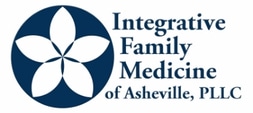World Breastfeeding Week (WBW) occurs every August 1st to August 7th. It is a global campaign to raise awareness and galvanize action on themes related to breastfeeding. I want to honor this week by writing a blog on my perspective on breastfeeding.
One of my favorite conversations with patients and peers is about how natural breastfeeding is said to be. It feels like the opposite of natural! Breastfeeding is complex and different for everyone. I had the opportunity to breastfeed both of my daughters, and each journey was unique and challenging. But it also encouraged me and my children to grow together. Breastfeeding is difficult to articulate in words. To me, it is a parallel to motherhood in general. It is arduous and challenging in ways you were not even aware of. It is time-consuming. However, it can also be so joyful and rewarding, and it can bring you to tears. It is an experience that can beautifully unite us.
WORLD BREASTFEEDING WEEK
Discussing breastfeeding openly without judgment has the greatest potential for emotional connection and support within our community, families, and peers. This year, the World Alliance for Breastfeeding (WABA)’s intention during WBW is to close the gap by focusing on the survival, health, and wellbeing of the mother and the child. Most of us know the benefits of breastfeeding, but it doesn’t hurt to review them! Breastfeeding benefits include:
- A more robust immune system
- Reduced risk of SIDS
- Optimal brain development
- Bonding
- Emotional well-being
- Reduced risk of postpartum bleeding
So why, then, isn’t every mother breastfeeding?
MY JOURNEY
My first daughter was born in an emergency C-section. I did not meet her until hours later. As so many women have experienced: this was not the birth that I planned. Breastfeeding was delayed. To me, the first feelings of becoming a mother were incredible joy, grief for my birth process, and maternal guilt. I was a labor and delivery/postpartum nurse. How could I let this happen to me? I knew how important skin-to-skin contact was within the first few hours. Many aspects of breastfeeding and motherhood are not in your control. There is emotional pain, physical pain, and great opportunities for emotional growth and bonding. It was the first of many lessons. Over the next two months, I saw lactation consultants several times a week. I had to pump, syringe feed, and try to nurse every 3 hours. It was grueling. I also had to use a shield and slowly transition her off of it. Finally, she could nurse independently. But then, at around seven months of age, she stopped. There were feelings of doubt, poor confidence, and grief for the “normal” breastfeeding journey. I was incredibly hard on myself. There was self-imposed pressure to make this journey “successful” because, in my mind, my pregnancy and birth were not. On paper, I had all the tools and knowledge to ensure my success. I want to share my experience here to help validate and acknowledge how incredibly difficult this journey is for many mothers. The feelings of self-doubt should be normalized – because it is normal. Breastfeeding is about a relationship between two people who are continually learning about one another. It takes time and trust. My firstborn helped free me from my self-criticizing behavior. Her acts of unwavering love and support over the past five years have given me a new perspective on motherhood and, of course, breastfeeding.
ACT TWO
Exactly four and a half years after my first child entered this world, my second daughter was born! I was a seasoned mom this time around. The perspective I had gained, the support I had, and my knowledge set me up for what I believe is “success” in breastfeeding. I believed I would be successful, whatever the outcome, with my secondborn. Whether she nursed or she didn’t. Whether I pumped for 6 months or 12 months, or if I used formula or chose not to supplement. There was no set expectation for me. I intended to care for my daughters, my family, and myself and not meet a particular timeframe or set specific goals. I still had many thoughts of failure, but had the confidence to know that I could have failures every day and still be successful.
MATERNAL WELL-BEING
Having open conversations without judgment is a great first step to supporting a mother’s well-being. Perspective, shared experiences, and family/employment/community support allow mothers to be their version of whatever success means to them. Breastfeeding is one of the very first opportunities to prioritize maternal well-being.
LOCAL SUPPORT
The community can further support breastfeeding with the local Le Leche League, where you can access up-to-date information, attend support groups, and meet with mothers who are also breastfeeding. Locally, resources like Flow of Life at West Asheville Yoga and Homegrown Families also offer postpartum support. Local lactation consultants that take your insurance are easily available with varying appointment times, or even better, come to your own home. Their support and knowledge is irreplaceable. Mission Hospital has a lactation team that can see you throughout your stay at the hospital. Asheville Lactation Consulting is another local group; they can see you at your home.
IN THE HOME
Support in your own home is also a determinant of successful breastfeeding. You can delegate actions like washing pump parts, storing milk in bags, getting the baby at night, changing their diaper, and then handing the baby to the mother to nurse. It is not just the physical actions but the emotional ones as well. Validate the emotional hardships the mother and child could experience and celebrate the “wins.”
IN THE WORKPLACE
In the workplace, support comes in the form of paid maternity leave, a comfortable place to pump in private, a place to store milk, and paid pumping breaks. This is not every mother’s reality, but the discussion of what is required to be successful in breastfeeding needs to be discussed and advocated for. It is also important to know your rights. President Biden signed the Consolidated Appropriations Act in 2023. Most nursing employees have the right to reasonable break time and a place, other than a bathroom, that is shielded from view and free from intrusion to express breast milk while at work. This right is available for up to one year after the child’s birth.
There is still a lot of growing to do when it comes to supporting our mothers and their families. I think bringing awareness to the work that has been done to advocate for breastfeeding and continuing the conversation about what still needs to be done is a great step towards improving maternal health and wellbeing.
~

This blog post was written by Katey Perry, FNP, a medical provider at Integrative Family Medicine of Asheville. You can read more about Katey in her bio.

